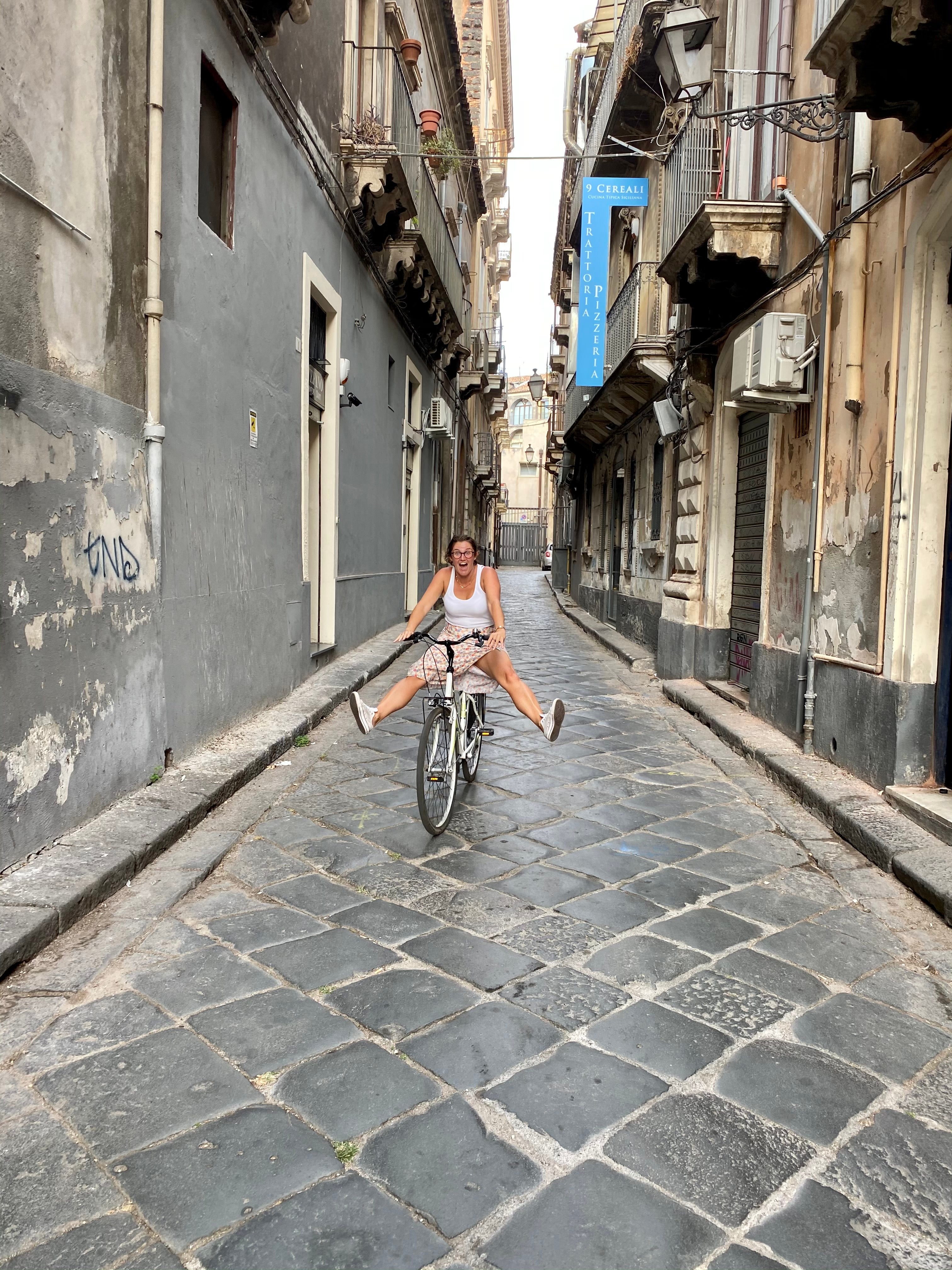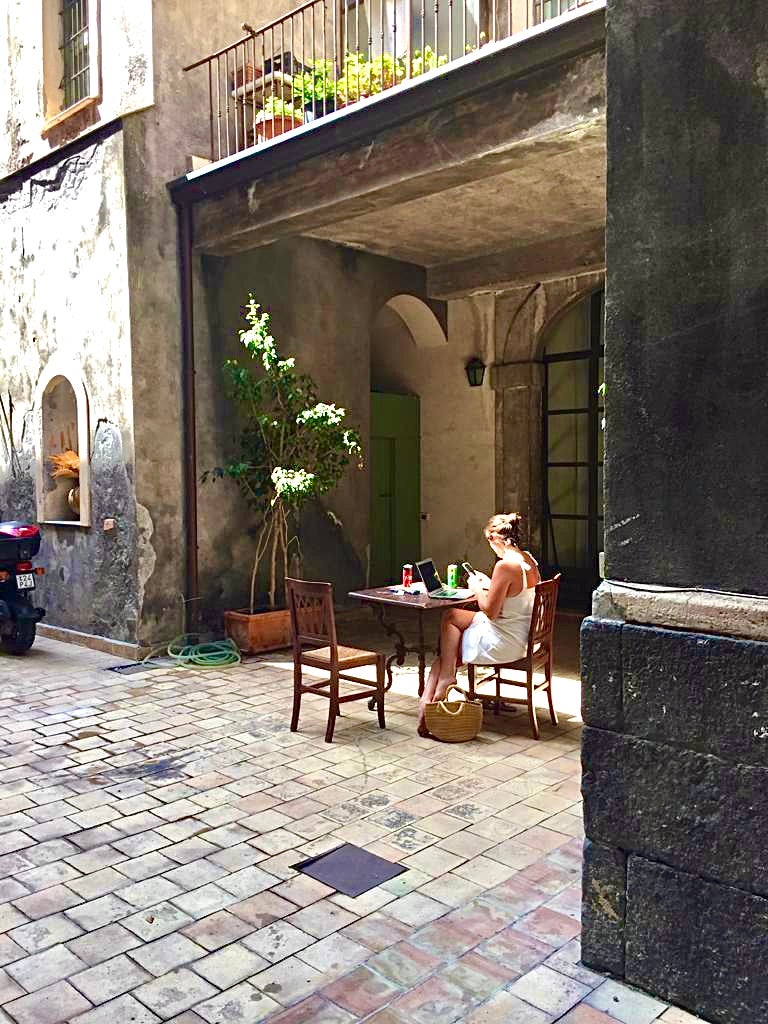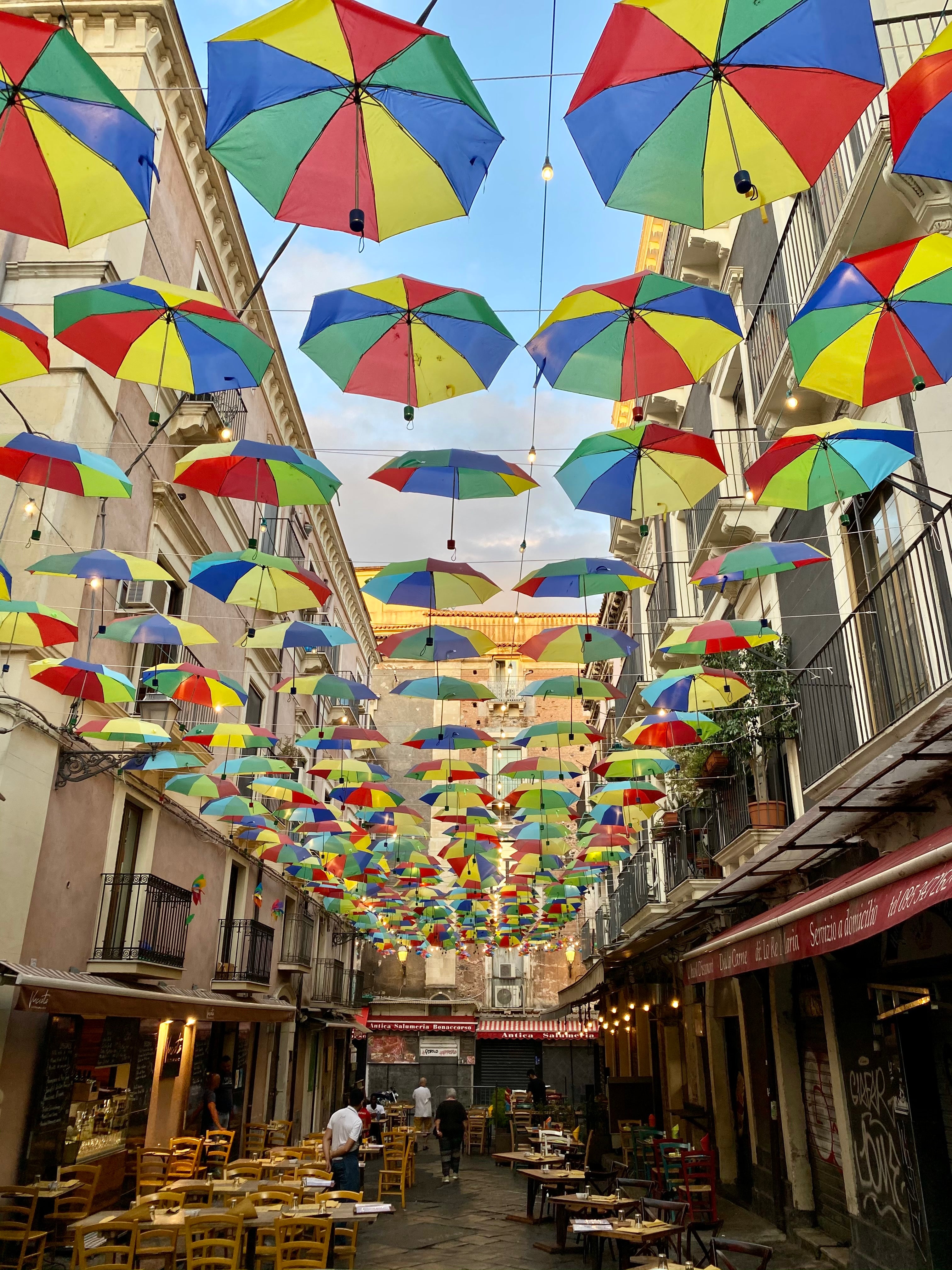I moved to Sicily during the pandemic to escape a solo lockdown
With no office to work from, Ella Alexander moved her life to Southern Italy during lockdown

In July, my employer announced that it wouldn’t officially reopen the office until January 2021. Up until that point, I had spent months of the pandemic working from home, wrestling between the joys of not having to commute and the lonely lows of working solo. Uncertainty, tension and isolation served as catnip to my anxiety, and I felt tired constantly.
So, when the news came that our offices wouldn’t reopen until the new year, I decided something had to give. I have always wanted to live in Sicily ever since I first visited when I was 21. Some people have more than one spiritual home and I’m not talking about second houses or apartments. I mean different places that they might not necessarily live full-time, but a place that holds a little part of their soul, a place that when they return there, they feel a little fuller.
For me, that place is a scruffy-looking but lively city called Catania that sits on the east coast of Sicily. If the current situation meant that I could work from anywhere, why not make it my favourite place? After all at that point, Italy was statistically a far safer place than the UK in terms of Covid cases at the time.
I was lucky that my boss was supportive. To them, anything that could bolster a happy, sane mind was surely a good thing. By then, the productivity of WFH was well-established and I set about looking at Airbnbs. I had a modest amount of savings accrued over the first lockdown, which I used to pay for accommodation. I didn’t want to give up my flat share, so it was a case of paying double rent – not an option available to everyone, I know – but without commuter costs, new clothes, coffees, lunches, dinners and nights out, in the absence of any social plans, at a pinch it was just about doable.
Read more: Best hotels in Sicily
There was no washing machine and no oven, but it did have a courtyard and beautiful vaulted ceilings
I looked for budget-friendly apartments; my criteria hinged on fast WiFi, a central location and somewhere that felt safe as I would be on my own for half of it. I found somewhere for £700 for five weeks – the basement of a 17th-century palace in what have been the old servant’s quarters. There was no washing machine and no oven, but it did have a courtyard and beautiful vaulted ceilings.

Arriving in Catania instantly made me feel lighter. Sicily is Italy on speed. It is warmer and more extreme than anywhere on the mainland. The locals, who identify as Sicilian not Italian, are either inordinately friendly or utterly miserable, either wildly overfamiliar or disconcertingly aloof. They are very noisy – it is still inexplicable to me why they speak so loudly at all times even in close proximity to one another, but ‘passione’ doesn’t have volume control. Catania specifically is hot, bustling and messy; it’s creative and interesting, drenched in a mix of sunshine and graffiti. It is fizzingly alive.
Every day for nearly two months, I worked on a little table in the courtyard outside my Airbnb. I ate well and cheaply – market-found food that tastes the way that it’s supposed to. I put on weight. I marvelled at the way in which the Italians took personal responsibility for the virus – masks were essential even back in August.
I made friends with the man who ran the local launderette and was given brief Italian lessons from the owners at the bar where I bought my daily cappuccinos. I learnt never to ask for a cappuccino beyond midday, nor to wait for Sicilian traffic to stop (just run, it’s the only way). I walked a lot and did yoga outside. I made friends with my neighbours, who became a little family to me. A four-year-old introduced me to key Italian phrases such as “fallo domani” (translated as: do it tomorrow) and made sure that I always stopped for lunch. I lived simply.
I worried about the optics – is contentment permitted under Covid?
Obviously, it wasn’t perfect. There was the day my laptop stopped working, when I nearly flew home. The WiFi was sometimes patchy and the basement studio wasn’t exactly overburdened with light. I became intimately acquainted with the local mosquitoes who ravaged me daily. I felt guilty when I talked to my friends at home, who were struggling with the shorter days and change in weather. I worried about the optics – is contentment permitted under Covid?

All I know is that the two months I spent in Italy was the longest period in my life I have not felt anxious. When the universe gives you such clear signals of where and what is good for you, you ignore them at your peril.
I returned back to the UK in early November with a fresh perspective on how to be happy and making the best of a bad situation. I appreciate that not everyone will have the opportunity or even the desire to work from a different country; these are decisions that are situation dependent. But we all have the choice to maximise what’s available to us to improve our way of living in lockdown. As the wise author Matt Haig says, “Anxiety happens when we feel out of control, so do things you can control.”
Being away has made me realise that working from home doesn’t have to be a cage; it can be an opportunity, whether that’s making your living space feel cosy and sanctuary-like with fairylights, putting up your Christmas tree early or forming a bubble with someone you love and having some great film nights (I’ve done all three in the past two weeks and can testify they work). It could be moving to a different country when it’s safe again to do so and the restrictions have been lifted - just allowing an idea like that to percolate might enable you to feel less trapped and low.
The last two months have taught me that life is about making the most of the choices available to us and finding the good, rather than falling back on what we think we deserve or the opinions of others. We can’t control the pandemic, how long it will last or the restrictions that it puts upon us. What we can control is our perspective - the opportunities we take are those we allow ourselves to see.
Ella Alexander is deputy digital editor of Harper’s Bazaar
Join our commenting forum
Join thought-provoking conversations, follow other Independent readers and see their replies
Comments


Bookmark popover
Removed from bookmarks